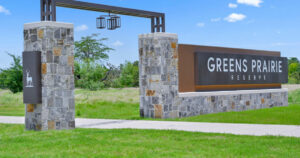Bryan-College Station Tackles the Feral Cat Population with TNR
Brazos County, Texas, recently celebrated National Cat Day, a day that not only honors our beloved feline friends but also brings attention to a pressing issue in the community: the increasing number of feral cats roaming the streets. As animal advocates in the Bryan-College Station area point out, there are hundreds of feral cats in need of assistance, and the solution lies within a method known as TNR—Trap, Neuter, Return.
Understanding TNR
So, what exactly is TNR? It’s pretty straightforward! The process involves trapping feral cats, taking them to a veterinarian for spaying or neutering, and then returning them to the area where they were found. Feral cats often have a distinct notch in their ear, specifically marking them as having been through this program. It’s essentially a badge of honor that signals they’ve been taken care of.
According to research from Texas A&M University, this method is not just effective; it quickly helps stabilize large populations of feral cats. Katrina Ross, the executive director of the Aggieland Humane Society, shares that in situations where there are about five or six feral cats, having them spayed or neutered helps maintain that number instead of letting it spiral out of control. “You can easily create a population of 30+ cats in no time if you don’t manage them,” she cautioned.
The Benefits of TNR
Advocates like Amanda Blake emphasize that TNR is a humane way to prevent feral cat colonies from growing unchecked. “Putting them into a home-type situation isn’t really the best thing for them,” Blake said. “That would be extremely stressful for them and the person trying to bring them into their home.” This is a crucial point—feral cats thrive in the outdoors, and TNR allows them to continue living in their familiar surroundings while also ensuring their health and well-being.
Interestingly, both Bryan and College Station have ordinances that permit TNR as a means to manage their feral cat populations. However, it’s important to note that neither city has an in-house TNR program. Instead, organizations like the Aggieland Humane Society collaborate with the cities to help with surgeries and vaccinations, but as Blake points out, there is still a gap in demand and resources. “I think funding is the number one issue,” she stated. “If we could expand the existing infrastructure, that would be a great way to enhance our efforts.”
Health and Safety for Feral Cats
TNR goes beyond just reducing the feral cat population. It also plays a significant role in ensuring the safety and health of these feline colonies. The program includes spaying or neutering the cats, providing rabies vaccinations, and of course, marking them with an ear tip as a signal that they have already received these essential services. “It’s really helpful,” Blake added. This method not only helps manage the population but also protects both the cats and the community.
Getting Involved
For those looking to help, the Aggieland Humane Society provides traps available for rent at just $5 for TNR efforts. It’s an affordable way for local residents to participate in managing the feral cat situation. By trapping a feral cat, getting it spayed or neutered, and returning it to its habitat, individuals can make a meaningful impact in their neighborhood.
As we observe National Cat Day, let’s remember the importance of our furry friends out there—especially those without homes. Through TNR and community support, we can contribute to a healthier, happier environment for our feline companions in Brazos County.








